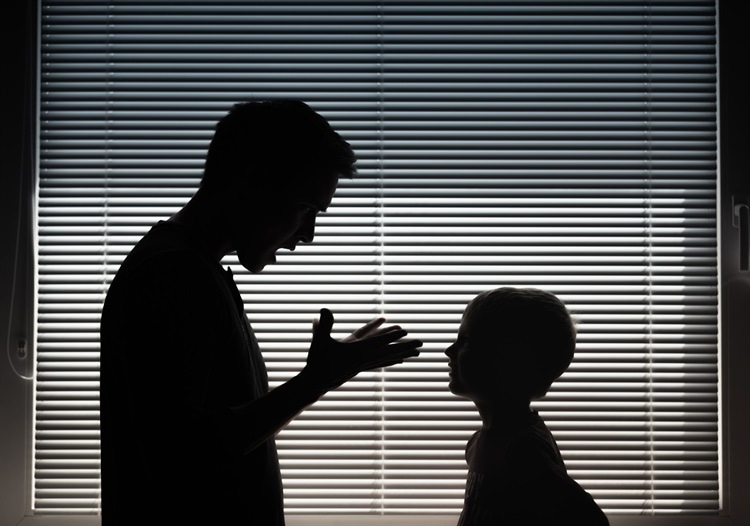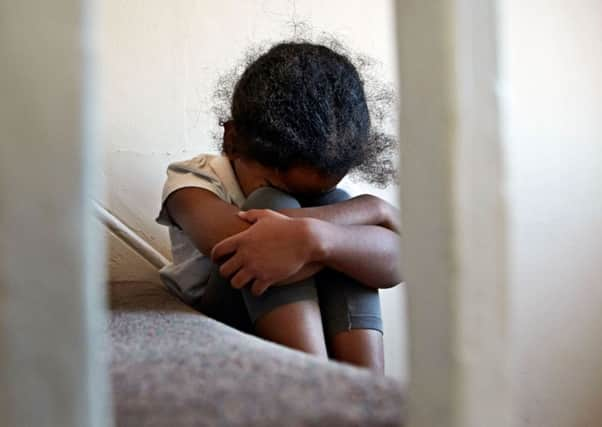Greetings!
Dear Beamers,
Child abuse is a detrimental issue that can affect children regardless of race, socioeconomic status, religion, or culture. Children are vulnerable, naive, and easily influenced, making them susceptible to abuse by perpetrators. Their defenselessness due to their size and strength is a significant vulnerability, and it is regrettable that this issue persists across generations with minimal progress in mitigation. Therefore, with a commitment to providing well-researched and comprehensive insights on pressing topics, this week’s newsletter focuses on the need to collectively combat child abuse in Nigeria.
With the increasing number of child abuse cases reported nationwide, certain regions of Nigeria remain unsafe environments for children. Many adults in society have been shaped into violent individuals due to being treated like criminals during their formative years. Some have developed psychological conditions such as depression and chronic pain as a result of being violated by sexual predators and pedophiles. Consequently, they are unable to lead normal lives, as the trauma continues to haunt them.
In the context of sexual abuse against female children, such experiences have contributed to the rise of feminism and feminist movements, which often view men as potential threats seeking to exploit women. Many victims report being abused by older relatives, neighbors, or family friends whom their parents or guardians deeply trusted. In some cases, these children are threatened with the loss of something precious to them, compelling them to remain silent throughout their lives. As a result, when the time comes to build a family, the persistent trauma often leads them to choose to remain unmarried.
While sexual abuse is not the only form of child abuse, it is among the most concerning. Numerous incidents are reported, but the majority remain unreported. One reason for this is that victims fear embarrassment or retraumatization when discussing their experiences. If these emotional scars remain unhealed into adulthood, they can significantly damage the individual’s personality, leading to continued feelings of self-pity, worthlessness, and depression, or potentially driving them to seek revenge on an innocent child.
Over the years, it has been assumed that children who experience abuse do not speak about it. However, recent research indicates that children are not adept at concealing their struggles. Children’s responses to abuse vary due to diverse factors that shape their beliefs and attitudes toward relationships. While some children are very vocal about their needs, others may use subtle gestures to communicate, and some may remain unresponsive, expecting others to interpret their thoughts. The crucial question we must ask ourselves is: are we truly listening?
In an effort to understand children, Olosunde Peter believes that the disclosure of abuse necessitates a process that should not be rushed. In his words,
“It’s important to understand that talking about abuse is a process, not just a one-time thing. It’s necessary that you’ve been trained to understand why a child might be hesitant to talk. Many victims have their own ways of dealing with abuse, like keeping it to themselves out of fear or guilt. They might also feel pressure from the abuser to stay silent. Don’t rush them or bring up sensitive topics until they’re ready. You just need to be patient and understanding.”
Too often, intervention occurs only after abuse has been reported. However, we can intervene to prevent abuse from occurring or worsening, even if it has already begun. There are always signs indicating these struggles, and it is our duty not to dismiss them as insignificant unless proven otherwise.
Destiny Ugorji, a student at a Nigerian university, believes there are identifiable patterns that indicate a child has been abused. In his words,
“Kids can also suffer emotional abuse when they’re constantly rejected, yelled at, or kept away from others. It’s important to recognize the signs. Not all signs of abuse are physical injuries. Things like feeling sad, being scared of a certain adult, struggling to trust others or make friends, changes in eating or sleeping habits, acting inappropriately, not taking care of themselves, keeping secrets, or being hostile can show there’s a problem at home. These signs might mean a child is being abused.”

Another common form of child abuse in Nigeria is corporal punishment. While disciplining children is important, it must be done thoughtfully. Children, born with no prior experience, are prone to making mistakes and need guidance on distinguishing right from wrong. It is essential to acknowledge that they are allowed to make mistakes, and even when they develop bad habits, they should be corrected appropriately without resorting to excessive force.
In situations where physical discipline may seem like the most effective form of correction, it’s crucial never to discipline your child when you’re upset. It’s wise to allow yourself time to calm down. Remember that discipline is a means of teaching your child. Utilize privileges to reinforce positive behavior and time-outs to assist your child in regaining control.
There is a critical need for a deliberate commitment to ending cruelty to children, particularly through corporal punishment. Aligning with the broader framework of child protection will ultimately safeguard and uphold the rights of all children and contribute to eradicating all forms of child abuse. Transitioning from corporal and harsh treatment of children to implementing more innovative correctional approaches will help individuals realize that they can discipline a child without resorting to mental or physical punishment.
It is important to recognize that abuse extends beyond physical harm; both words and actions can inflict deep and lasting wounds. Some parents leave lasting scars on their children through their verbal expressions. For example, comparing a child unfavorably to others due to perceived shortcomings can set them on a path to unhappiness. While some children may be motivated to excel when compared to their peers by their parents, this approach often leads to a life measured by competition. Consequently, they may grow up feeling envious and uncomfortable when others outperform them. For children who lack the mental resilience to cope with comparisons, they are more likely to experience depression and feelings of inadequacy.
A less highlighted yet significant form of child abuse in our society is child labor, particularly popular in rural areas where many families are affected by this crime. Within family dynamics, each member typically has assigned responsibilities, with the father tasked with providing and the mother supporting and caring for the household. However, some parents impose roles on their children that are not age-appropriate. Children at young ages are coerced into tasks far beyond their capabilities and physical strength. Moreover, some are deprived of their right to education, despite the government’s provision of free schooling. Instead, these children are compelled to work on farms or in workshops to supplement their parents’ income. As a result, they often lag behind their peers, especially in academic pursuits, facing the repercussions of their parents’ detrimental actions.
Indeed, there is no foolproof method to safeguard children from abuse, particularly sexual abuse, but there are measures you can implement to mitigate this risk. In the unfortunate event that your child experiences abuse, it’s important to remember that the perpetrator bears responsibility—not the child.
Actively engaging in a child’s life can make the warning signs of child sexual abuse more apparent and encourage the child to feel comfortable approaching you if something seems amiss. If you observe or hear anything that raises concern, it’s imperative to take steps to safeguard your child. Demonstrate genuine interest in their daily activities by inquiring about their experiences and interactions. Engage them in discussions about their day-to-day routines, including who they spent time with, activities they engaged in, and their overall enjoyment.
Familiarize yourself with the individuals in your child’s life, understanding with whom they spend time, both peers and adults alike. Engage your child in conversations about their schoolmates, their friends’ parents, and other acquaintances they may encounter. Foster an environment of open dialogue by openly discussing these individuals and encouraging your child to feel at ease sharing their experiences and interactions.
Exercise caution when selecting caregivers for your child, whether it involves hiring a babysitter, enrolling them in a new school, or registering them for an afterschool activity. It’s essential to conduct thorough screening of potential caregivers to ensure their suitability. Instances of child sexual abuse have originated from caregivers whom children trusted but who exploited their vulnerability to intrude upon their privacy. Therefore, it is important to meticulously vet any caregiver until you are confident in their moral integrity before entrusting them with the care of your children.

It is crucial to foster an environment where children feel empowered to express themselves freely. When individuals are confident that their voices will be acknowledged and respected, they are more likely to speak out when faced with concerning situations. Begin initiating these discussions with your children as soon as they begin expressing emotions verbally. From a young age, educate your child on the names of their body parts. Equipping children with this vocabulary enables them to communicate effectively and seek help if needed.
As parents or guardians, it is necessary to educate your child about boundaries. Emphasize to your child that nobody has the right to touch them or make them feel uncomfortable. It’s imperative to instill in your child the understanding that their body belongs solely to them. Similarly, reinforce the notion that they do not have the privilege to inappropriately touch others. When children are empowered with the knowledge that they are valued and entitled to safety, they are less likely to internalize blame for abuse and more inclined to report offenders.
Susan Ojo, a civil servant and mother of two children, suggests that…
“Parents are often busy trying to make ends meet, but why do we work so hard if not for our children? It’s important to be available for them. Set aside time to spend with your child where you can give them your full attention. Let them know they can talk to you if they have questions or if something makes them uncomfortable. If they do come to you, keep your promise and make time to talk. Tell them they won’t get in trouble for confiding in you, because some bad people try to scare kids into keeping secrets. Reassure them that they can trust you and won’t be punished for speaking up.”
“There is perhaps no clearer reflection of a society’s ethos than its treatment of its children,” states an adage. It is a well-documented truth that many activists emerge from the adversity they have personally endured. Genuine activism demands resilience and determination. It is therefore important to recognize that these children require recognition of their challenges from the global community.
Child abuse is undoubtedly a troubling subject that is challenging to address, particularly for the children who are its victims. Trusting and confiding in an adult can be an immensely difficult task for them. Hence, it is crucial for all members of society to join forces in confronting this distressing issue. In the interest of societal well-being, it is a duty to report instances of abuse. If you witness a child being harmed or come across evidence of abuse, it is essential to make a report to the appropriate authorities, including human rights organizations.
Protecting our children cannot be the sole responsibility of a single government, organization, or individual; it is the collective duty of every member of society to safeguard not only their own children but all children. By turning a blind eye, one becomes complicit in the crime and shares the guilt with the abuser. As Martin Luther King Jr. once said, “Your life begins to end the day you become silent about the things that matter.” Let us unite to protect our children; they should not have to feel like solitary warriors without guardians.




